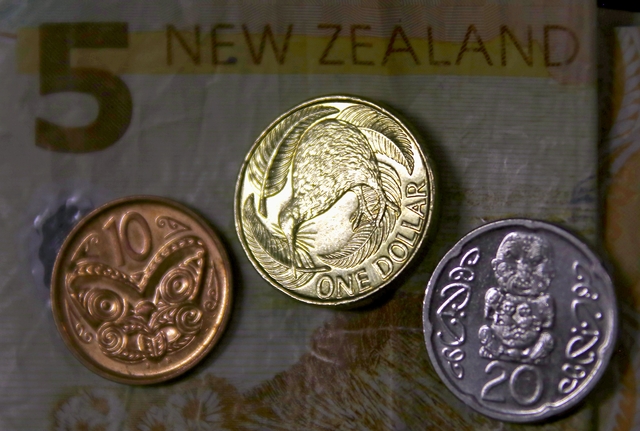(Adds detail, context on economy, finance minister comments)
The New Zealand government on Thursday said its finances are looking strong, predicting budget surpluses over the next four years as robust migration, construction activity and tourism support an economy facing heightened external risks.
Finance Minister Bill English said the government expects to post a NZ$668 million surplus in the year to June 2016, a sharp turn from a deficit of NZ$401 million forecast in the December half-year economic and fiscal update.
"The pace of growth picked up in the second half of 2015 and was stronger than anticipated," English said during the annual budget presentation. The result is upward revisions to both tax revenue and the operating surplus before gains and losses.
"These gains are sustained across the forecast period by ongoing strength in net migration inflows, construction activity and spending by visitors," he said.
The government is now forecasting a NZ$719 million surplus in the year to June 2017, versus a prior forecast of NZ$356 million. It is also more optimistic about future surpluses.
New Zealand's economy has taken a hit in recent quarters from a sharp drop in dairy exports - its mainstay foreign exchange earner - and a slowdown in its key trading partner China.
However, English said the underlying momentum is expected to see annual average gross domestic product growth accelerate from 2.6 percent in June 2016 to 2.9 percent in June 2017. It will then increase to 3.2 percent in the June 2018 year.
He underscored, however, there are "key risks" to the economy, including a sharp downturn in China, persistently low global inflation, a possible British exit from the European union and geopolitical risks.
Domestically, Treasury said weak inflation is a risk to the economy. However, "monetary policy is expected to remain accommodative," with one further 25 basis point interest rate reduction expected in 2016. Interest rates are currently at record low 2.25 percent.
The New Zealand budget was a stark contract to Australia where the budget deficit is estimated at A$37.1 billion, or 2.2 percent of the country’s gross domestic product (GDP) in 2016/17. In Australian the aim is to balance the books by 2020/21.
The budget brings forward some spending previously earmarked for the following year's budget.
New spending over the next four years includes a NZ$411 million investment in science and technology for grants and research and NZ$2.1 billion for public infrastructure.
- Forums
- NZX - General
- News: UPDATE 1-NZ sees budget surpluses as economy resilient in face of external risks











